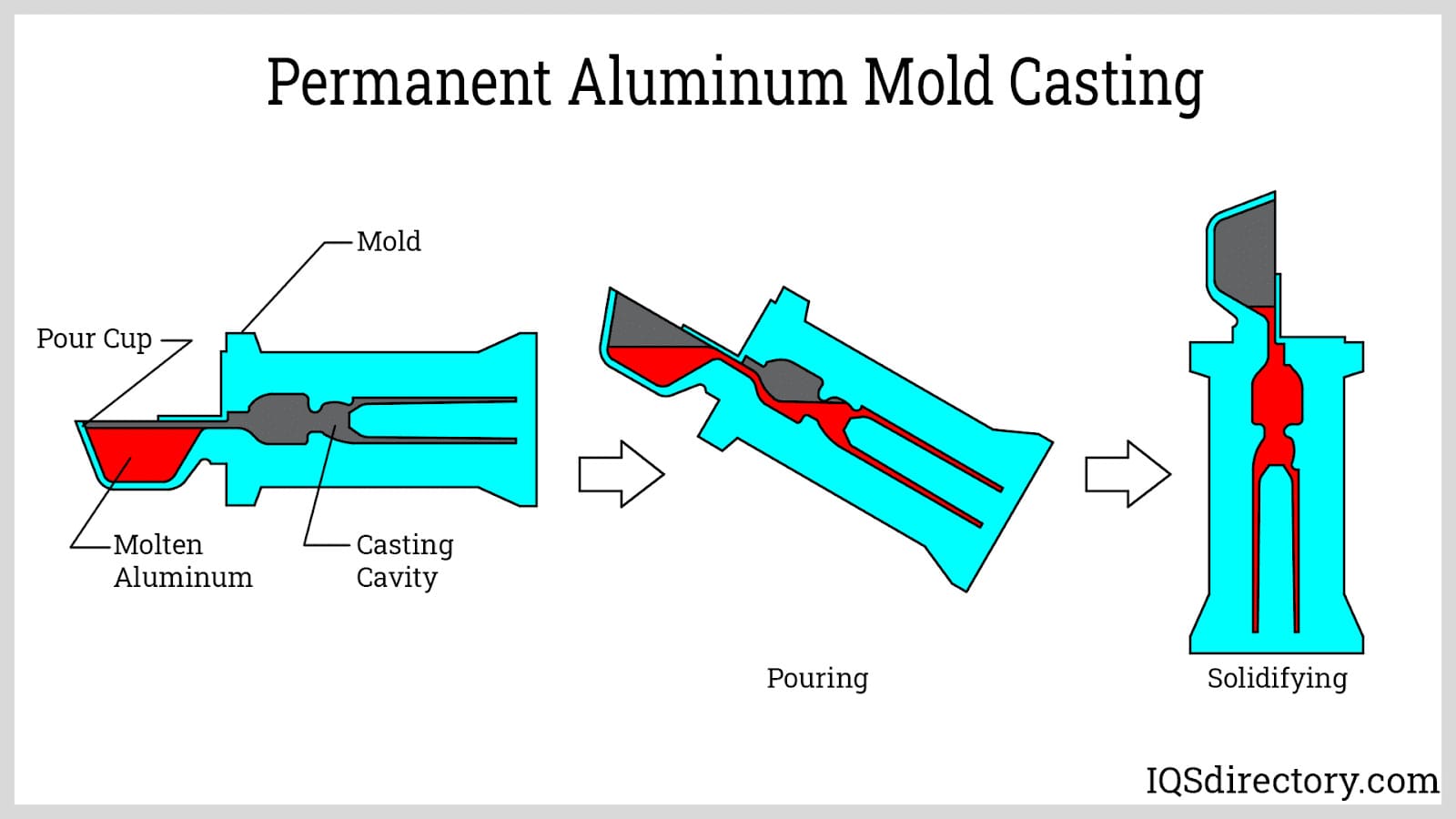The Necessary Uses of Aluminum Foundry in Various Industries and Their Effect
Aluminum factories act as a vital source within many markets. Their lightweight and durable materials considerably boost efficiency in automotive, aerospace, construction, and electronics sectors. As each market leverages light weight aluminum's unique residential or commercial properties, they additionally add to sustainability initiatives. This complex impact motivates a much deeper exploration of how Aluminum formed these fields. What details advancements and advantages emerge from its usage?
Automotive Market Applications
The vehicle sector significantly counts on Aluminum Foundry applications to improve automobile performance and efficiency. Aluminum's lightweight nature contributes considerably to sustain economic climate, making it a favored selection for manufacturers aiming to lower emissions and improve total automobile dynamics. Components such as engine blocks, transmission real estates, and wheels are generally generated with Aluminum spreading processes, enabling intricate designs that meet extensive safety and efficiency requirements.

Aerospace Innovations

The use of aerospace-grade Aluminum alloys enhances resistance to rust and tiredness, necessary for the demanding settings airplane face. Technologies in additive production also enable fast prototyping and personalization of parts, lowering preparations and expenses.
Building and Framework
While the building and construction and facilities fields continue to progress, Aluminum foundries are increasingly identified for their payments to contemporary building techniques. Aluminum's light-weight nature and high toughness make it an ideal product for numerous structural applications. Foundries provide components such as light beams, structures, and facades that improve the sturdiness and longevity of buildings and infrastructure jobs.
Furthermore, aluminum's corrosion resistance plays an important role in prolonging the lifespan of frameworks subjected to harsh environmental conditions. The energy effectiveness of Aluminum items likewise aligns with sustainable building campaigns, adding to lower energy consumption in construction. Additionally, cutting-edge casting techniques have broadened the design opportunities, allowing engineers and engineers to create cosmetically pleasing yet functional structures.
Electronic devices Production
Aluminum shops play a significant function in the electronics producing sector, where the demand for lightweight and thermally conductive materials is paramount. Aluminum Foundry. Components such as warmth sinks, cases, and brackets are commonly generated using Aluminum as a result of its exceptional thermal homes and capacity to dissipate warm efficiently. This is vital in digital tools, where overheating can result in failure and lowered performance
The adaptability of Aluminum permits complicated layouts and exact machining, which are essential in modern electronic devices. On top of that, aluminum's non-magnetic buildings make it ideal for applications in delicate digital equipment, minimizing disturbance. Aluminum's resistance to corrosion improves the toughness of electronic parts, ensuring longevity and integrity.
Sustainability and Reusing Efforts
Provided the enhancing focus on ecological duty, the Aluminum Foundry market has made substantial strides in sustainability and recycling initiatives. Aluminum is inherently recyclable, permitting foundries to reclaim and recycle product with marginal energy expenditure compared to primary manufacturing. This closed-loop recycling process not only decreases waste however also reduces greenhouse gas discharges, adding to a more sustainable production design.
Furthermore, numerous foundries are taking on energy-efficient innovations, including eco-friendly power sources, to power their operations (Aluminum Castings). This change not only reduces reliance on nonrenewable fuel sources however additionally boosts general operational performance
Sector collaborations are additional advertising lasting techniques, such as sharing my review here best techniques and creating cutting-edge recycling techniques. By prioritizing these initiatives, the Aluminum Foundry market is positioning itself as a leader in sustainable manufacturing, aligning with worldwide targets for sustainability while fulfilling the demands of various industries.

Frequently Asked Concerns
What Are the Main Advantages of Utilizing Aluminum in Foundry Processes?
The primary advantages of making use of Aluminum in Foundry procedures include its lightweight nature, excellent deterioration resistance, high thermal and electric conductivity, and flexibility, enabling intricate designs and efficient recycling, eventually boosting overall manufacturing performance web link and reducing prices. - Wisconsin Aluminum Foundry
Just How Does Aluminum Foundry Impact Product Lifecycle Administration?
Aluminum Foundry substantially improves item lifecycle monitoring by enabling effective product use, reducing waste, and helping with recycling. Its lightweight properties enhance transportation performance, while resilience extends item life expectancy, inevitably contributing to sustainability and cost-effectiveness in manufacturing.
Exist Certain Obstacles in Aluminum Foundry Manufacturing?
Specific challenges in Aluminum Foundry production consist of taking care of temperature level control, making sure material top quality, minimizing waste, and adjusting to changing market demands. These variables can impact efficiency, price, and overall competitiveness within the industry.
What Precaution Are Essential in Aluminum Foundry Operations?
Necessary precaution in Aluminum Foundry procedures consist of personal safety equipment, correct ventilation, regular tools maintenance, hazard communication, and emergency situation action training. Implementing these methods guarantees worker safety and decreases dangers related to high-temperature steel handling.
Just how Does the Price of Aluminum Contrast to Various Other Metals in Foundry Usage?
The cost of Aluminum is typically less than that of metals like copper and titanium, making it a cost-effective option for several Foundry applications. This cost adds to its extensive usage across various sectors.
Aluminum shops serve as an important index source within various industries. The vehicle industry increasingly relies on Aluminum Foundry applications to improve automobile efficiency and effectiveness. The product's recyclability additionally aligns with the sector's push towards sustainability, as recycled Aluminum needs considerably less power to procedure contrasted to key light weight aluminum. Aluminum foundries play a considerable duty in the electronic devices manufacturing industry, where the demand for light-weight and thermally conductive products is vital. Provided the enhancing emphasis on ecological duty, the Aluminum Foundry industry has actually made substantial strides in sustainability and recycling initiatives.